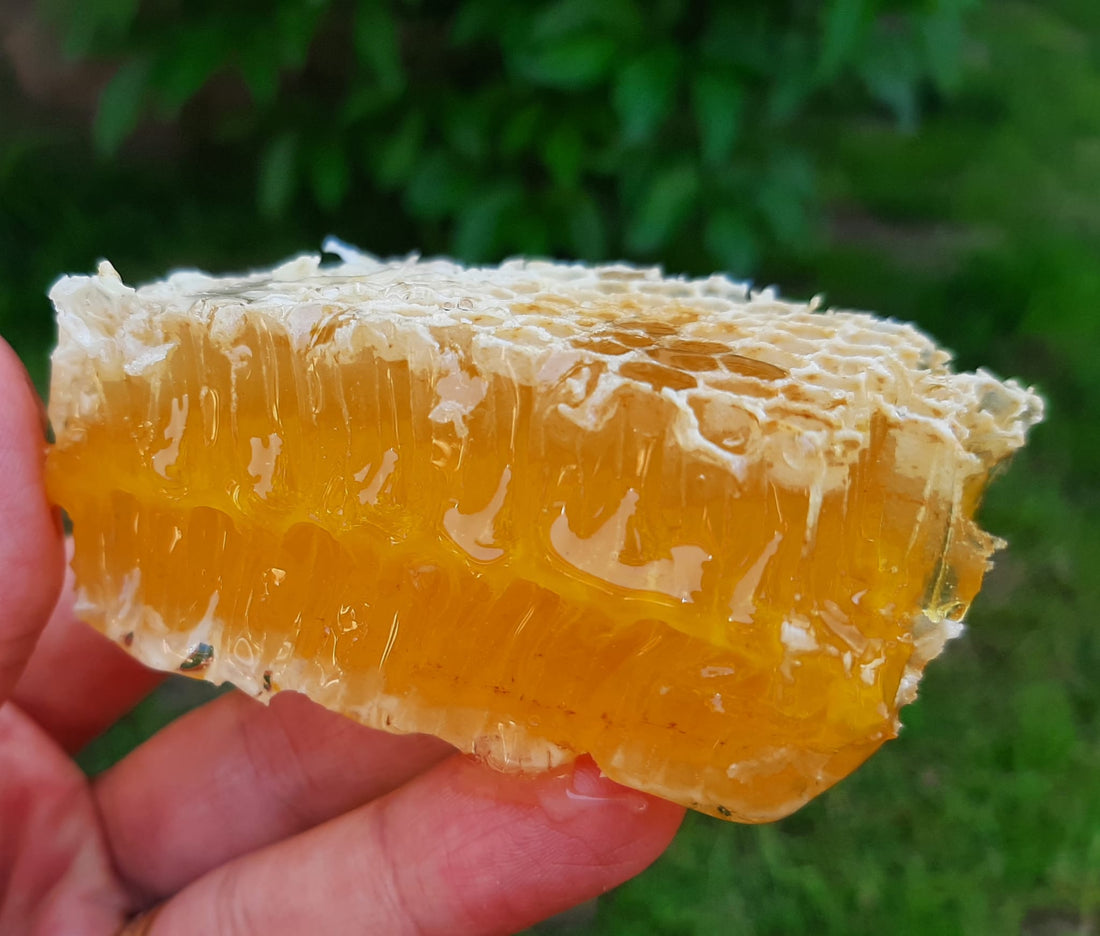🍯 What Makes Honey “Raw”?
Raw honey is honey in its most natural form — straight from the beehive, with no heating, filtering, or pasteurisation. It contains all the natural enzymes, pollen, propolis, and nutrients that bees include during the production process.
At The Nature Queen, our raw honey is non-GMO, 100% natural, and harvested with care to preserve all of its original health benefits.
🔥 Raw vs. Processed Honey
Most supermarket honey is pasteurised — it's heated at high temperatures to make it smoother and more shelf-stable. But this also destroys enzymes and antioxidants.
Here’s how raw and processed honey compare:
| Feature | Raw Honey | Processed Honey |
|---|---|---|
| Enzymes | ✅ Preserved | ❌ Destroyed |
| Bee Pollen & Propolis | ✅ Retained | ❌ Filtered Out |
| Flavour | 🌼 Floral, bold | 🧁 Mild, sugary |
| Colour & Texture | 🍯 Varies naturally | Uniform & clear |
🌿 Health Benefits of Raw Honey
-
Supports immune system with enzymes & antioxidants
-
Natural energy source (better than sugar!)
-
May soothe sore throats & seasonal allergies
-
Contains trace vitamins, minerals & amino acids
-
Aids digestion and gut health
🍽️ How to Enjoy Raw Honey
-
Drizzle over porridge, toast or yoghurt
-
Add to herbal teas or lemon water
-
Use in raw desserts or marinades
-
Mix into smoothies or homemade dressings
🐝 Tip: Never heat raw honey above 40°C — high heat destroys its live enzymes!
🐝 Sustainability Matters
At The Nature Queen, we harvest honey with love and respect for our bees. We never over-harvest, and always leave enough honey for the colony to thrive. It’s ethical, sustainable, and genuinely raw.
🛒 Ready to Taste Real Honey?
Try our bestselling Raw Honeydew Honey and enjoy honey as nature intended.
👉 Free UK delivery on all orders over £35.


1 comment
Useful post, especially the details for daily life with Honey